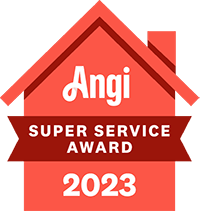-
Q: WHAT IS THE MOST FEASIBLE AND COST-FRIENDLY HEATING SYSTEM TO INSTALL IN YOUR HOME?
A: The most budget-friendly and convenient way to heat your home is to use a combustion heater that runs on natural gas. Natural gas is readily available and is far cheaper than oil or electricity. Gas furnaces are available at low prices and are feasible to maintain and replace.
-
Q: HOW FREQUENTLY SHOULD ONE CHANGE THEIR AIR FILTERS?
A: Air filter replacements depend on the filter type you are using, its quality, and the amount of allergens or dust in the air. Air filters are generally advised to be replaced every month, but if you use poly or pleated filters with extra absorbency and layers, they can work for up to 3 to 4 months.
-
Q: WHAT SIZE OF AC UNIT IS BEST FOR YOUR HOME?
A: The size of the AC unit varies from home to home. You should pick an AC unit slightly bigger than your home need. But avoid installing a huge one as it will surely cool down the inner air faster, but due to the short cycle and faster airflow, the humidity inside the home will increase, which might cause mildew and mold in the property. Moreover, with frequent on and off of the system, the energy consumption will also increase, causing a big difference in your utility bill.
-
Q: WHAT IS THE LIFESPAN OF AN HVAC SYSTEM?
A: An HVAC system lasts 10-15 years or more, but as the system gets older, its efficiency decreases over time, and it has more electrical and heat loss. So replacing the HVAC by 10 years or at least some of its components is recommended. Also, regular maintenance and cleanups will keep your HVAC healthy for years.
-
Q: CAN WE INTEGRATE THE NEW INDOOR/OUTDOOR UNIT WITH THE PREVIOUS OUTDOOR/INDOOR UNIT?
A: The SEER rating and the construction of new systems are quite different from the older units, so even if you can match an indoor or outdoor unit with your previous one, it won’t work with full efficiency. Moreover, the energy loss will increase, and the temperature inside the home won’t be managed as it did before. So replacing both units and installing matched components is always advisable for optimum performance.
-
Q: WHAT SERVICES ARE INCLUDED IN DUCT CLEANING?
A: Duct cleaning and maintenance services include repairing and cleaning HVAC components such as heat pumps, air ducts, air filter replacements, fan cleaning, heat exchanger maintenance, removing dust and other build-up from coils, grilles, registers, etc.
-
Q: DOES DUCT CLEANING AND PIPE REPAIR HELP WITH ENERGY COSTS?
A: A ductless heat pump is a split-style pump with an outdoor compressor unit and one or multiple indoor units connected with a refrigerant line. This can be used for heating and cooling, and you can avail better energy efficiency and faster temperature conditioning.
-
HOW TO IMPROVE INDOOR AIR QUALITY?
A: Replacing and cleaning the air filters regularly and installing an air purifier or cleaner can help reduce the amount of allergens in the indoor air. Also, keep the humidity at a regulated level regulated so there are no chances of mold or mildew build-up or fungal spores in the air. Indoor air quality is paramount and might be a reason for respiratory or other diseases if not appropriately maintained. You can also install UV light units and vacuum regularly for better air quality inside.
-
WHICH TYPE OF HEATING UNIT IS BEST, GAS, OIL, OR ELECTRICAL?
A: While oil furnaces provide the fastest and high heating, they require proper ventilation and a continuous fuel supply. On the contrary, gas furnaces have no harmful fumes, are cleaner and cheaper, and won’t need any chimney or ventilation channel. Electrical energy is also clean and safe. As per safety electrical heating unit is best, and based on cost-effectiveness and feasibility, a gas furnace will be an efficient choice.
-
WHAT IS MEANT BY ZONING HEAT SYSTEM?
A: A zoning heat system is a divided heating/cooling system in which you separate indoor units to control the temperature in every zone. This way, you can optimize energy use. E.g., in one room, if you require less heating or cooling, you can vary the thermostat, while in another room, the system runs at different thermostats.
-
WHAT DOES BTU MEAN?
A: BTU stands for British thermal unit, which measures the energy required to increase or decrease the temperature by 1 degree Fahrenheit. Generally, we mark AC in terms of Ton equal to 12000 BTU.
-
HOW TO CHECK FOR LEAKS IN YOUR HOUSE?
A: If you feel that some leaks in your water pipes are not visible, then you must look for any
Water puddles or wet spaces on your walls and floors.
Check for cracks and discoloration on cleaning and wall
Are any foundational damages or foul odours coming
The water meter running even when you are not using the water
Lower water pressure in the taps.
If you feel these signs, you must call any professional plumbing service to inspect and fix your water leakage. Water leakage can silently damage your property before you know it, affecting the HVAC system’s performance and increasing energy costs.
-
WHAT IS HYDRO JETTING?
A: Hydro jetting is a process of cleaning the pipes through high-pressure water. A water jet of about 4000 PSDI is forced through the water pipes that will clean out any debris, clogging, etc., from the lines. This is a chemical-free and safe process for water pipe cleanup.
-
WHAT IS THE AVERAGE COST OF MAINTENANCE AND CLEANING SERVICES FOR HVAC SYSTEMS?
A: The average cost of meantime and clean-up of the HVAC system ranges around 100-200 $ per annum. This can vary from system to system and the amount of repairs and leakages. Otherwise, this investment will keep your HVAC system functioning smoothly for years without any risks or extra losses.

